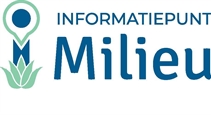New environmental rules for businesses in force
Environmental rules for businesses on Bonaire, St Eustatius and Saba entered into force on 1 April 2024. The environmental rules are set out in the Establishments and activities Decree BES (IAB BES) and in the ministrial regulation establishments and activities BES (RIA BES).
For businesses on Bonaire, St Eustatius and Saba, the new rules entail a number of changes.
What is the aim of the environmental rules and what does mean for businesses
The IAB BES and the RIA BES define environmental rules for businesses. These rules are necessary to protect the environment and the coral reefs. The rules include rules for protecting the soil from harmful substances, separating waste, good housekeeping and safe storage of hazardous substances. The IAB BES distinguishes different types of businesses (establishments). Depending on how much a business burdens the environment, general binding rules apply or an environmental permit is required.
There are 4 types of businesses (establishments):
- Type I: a business with a light environmental impact. For example offices or shops. A type I business does not need to notify. The general binding rules apply.
- Type II: these businesses have a moderate impact on the environment. For example and restaurants. A type II company must report to the competent authority (the administrative college) and the general rules apply.
- Type III: a business with a greater impact on the environment. For example, stone crushers, farms with large amount of animals, such as chickens or goats and asphalt plants. This type of businesses needs an environmental permit. The application for a permit is submitted to the Executive Council.
- Type IV: these establishments have a potential large environmental impact and risks to the environment. These establishments are for example oil terminals and for the storage of larger quantities of gases. An environmental permit for this type of establishments is required. The application for the environmental permit is submitted to the Minister for Infrastructure and Water Management. In practice, this is Rijkswaterstaat.
What will change with the new environmental rules
Most businesses are a type I or type II. A type II business notifies the public entity. The rules for notification and the general binding rules are set out in the IAB BES and in the RIA BES. A type I company does not need to notify.
If a business is a type III and it has a valid nuisance permit then probably nothing changes. Does a business not have a valid nuisance permit? Then it must apply for an environmental permit.
What rules are applicable
Most businesses are type I and II. For these businesses, the general binding rules set out in the IAB BES and the RIA BES apply. For type III and IV establishments that require an environmental permit, the environmental rules are set out in the permit.
Are transitional periods in place to comply with the rules
Yes, in some cases businesses have more time to comply with the rules. The transitional periods are set out in the RIA BES. It concerns a number of measures whose investments may be high for existing companies. For example, replacing a cesspool for a wastewater treatment system such as a septic tank. Businesses have five years to comply. For adjusting soil protection facilities, such as the construction of a concrete floor, businesses have 3 years.
More information
For questions about environmental regulations, please visit the Environmental Information Point. It is open on working days from 8 a.m. to 12.00 p.m. You can also ask your question by filling in the helpdesk form on the website of the Environmental Information Point and read the new environmental regulations.
